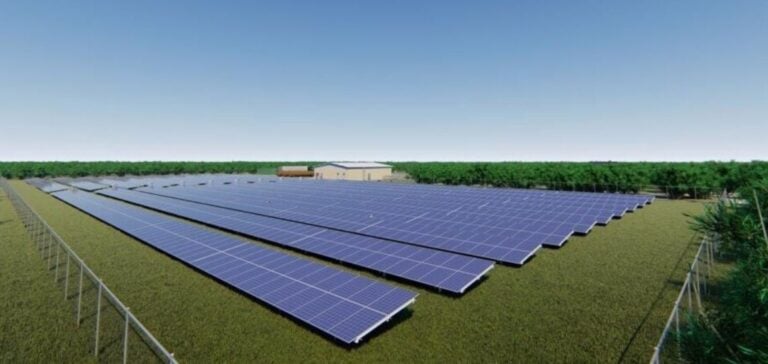The development of a hybrid solar power plant on the twin Caribbean islands marks a major step forward in the region’s energy transition. Since 2022, the President of the Caribbean Development Bank has been urging the islands to launch their energy transition. With this in mind, a project initiated by the UAE-Caribbean Energy Fund (UAE-CREF) embodies Antigua and Barbuda’s commitment to sustainable energy and climate resilience.
Energy Revolution in the West Indies
The official inauguration of the plant, named “Green Barbuda”, was attended by local and international dignitaries, underlining the strategic importance of this achievement for the region. This project, the fruit of close collaboration between the government of Antigua and Barbuda and Emirati partners, is a concrete example of South-South cooperation in sustainable development. It is, however, far from being the only example of a commercial partnership between the states of the Global South. In 2022, shipments of refined products to Latin America and the Caribbean multiplied. As a result, we’re witnessing an abundance of trade in this part of the world.
The “Green Barbuda” plant is designed to meet the energy needs of the island of Barbuda, while contributing to climate resilience and reducing energy costs. This initiative is part of UAE-CREF’s wider program to deploy renewable energy projects in 16 Caribbean countries. Taking a holistic approach, the Green Barbuda project combines several energy sources, including solar, batteries and diesel backup, to ensure a stable and reliable power supply.
Objectives and Impact
Green Barbuda aims to address several crucial issues facing the Caribbean islands. In addition to reducing energy costs, it strengthens climate resilience in the face of natural disasters such as hurricanes. Its hybrid nature, combining solar power, batteries and diesel back-up, guarantees a stable and sustainable power supply, essential for the region’s economic and social development.
The expected reduction in diesel consumption and CO2 emissions illustrates the potential of this initiative to reduce dependence on fossil fuels and promote an environmentally-friendly energy transition. This energy transformation is in line with the United Nations’ sustainable development goals, and is a model for other small island nations facing the challenges of climate change.
The successful commissioning of the Green Barbuda plant is a significant milestone in the quest for a more sustainable energy future for the Caribbean. By combining technological innovation with a commitment to sustainable development, this initiative paves the way for an inclusive and resilient energy transformation in the region.






















